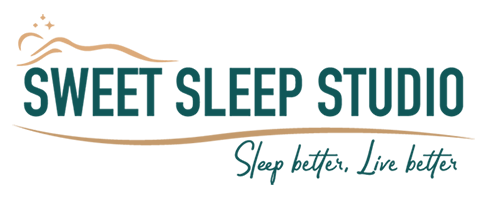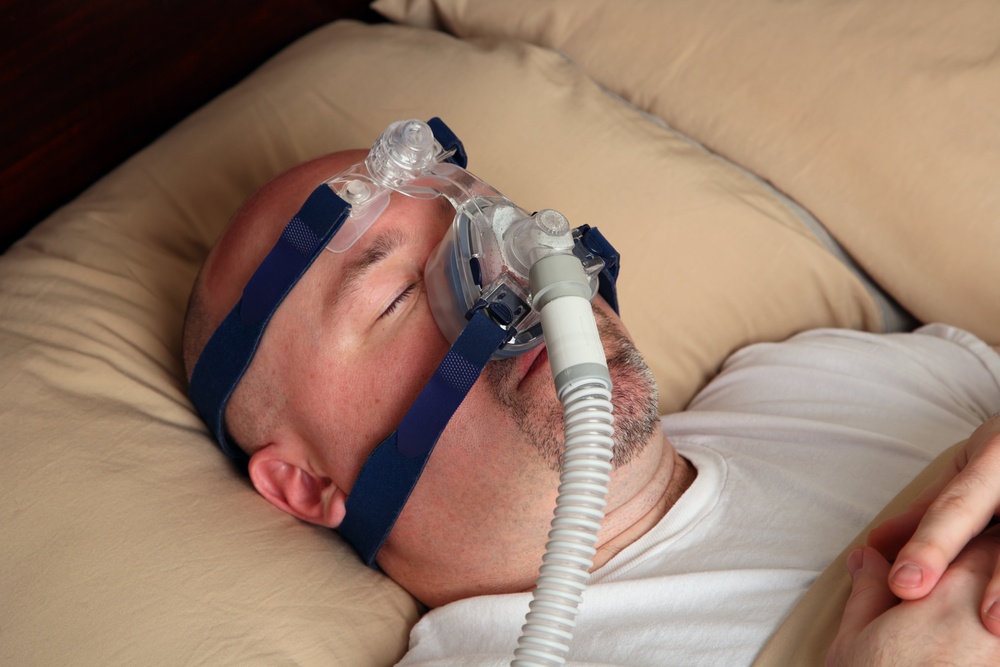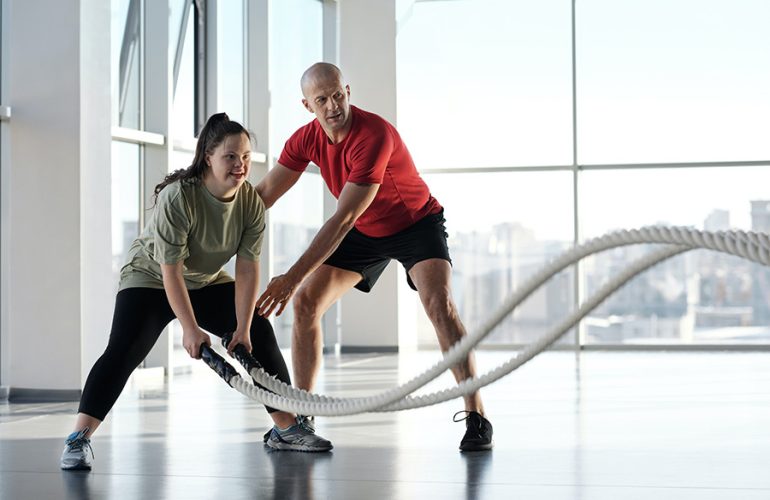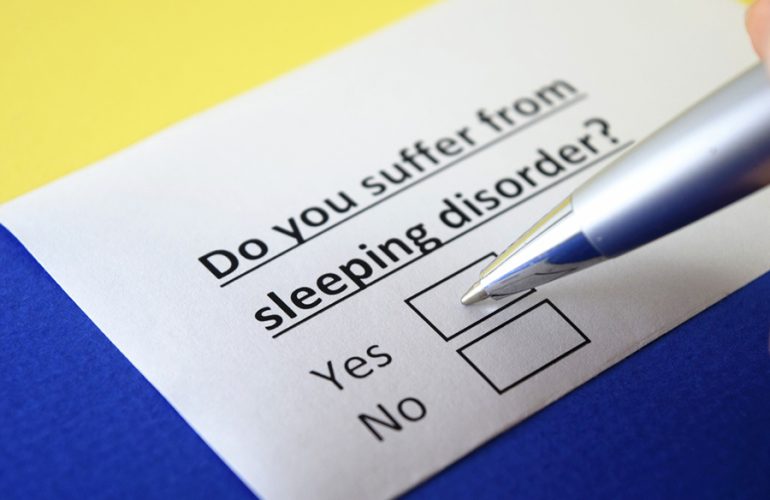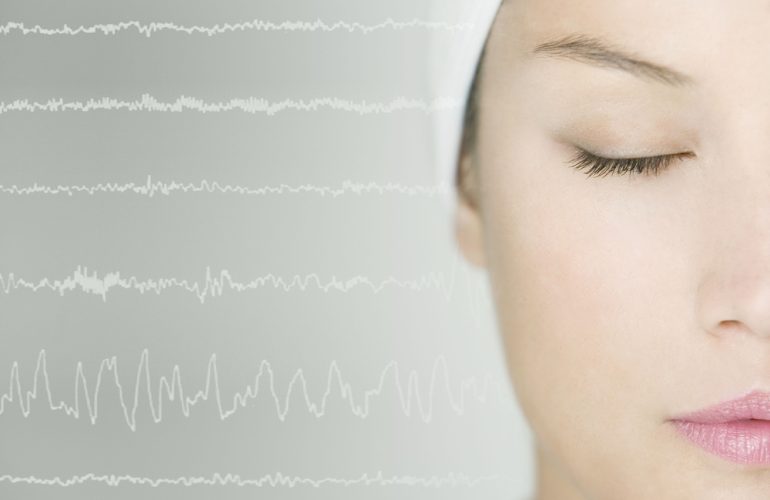If your doctor or sleep medicine specialist has already performed a sleep study and has determined your airway becomes blocked while you’re sleeping, they’ll likely prescribe you continuous positive airway pressure (CPAP) therapy. Once they decide you require CPAP therapy, they’ll likely order a CPAP titration study.
What is a Continuous Positive Airway Pressure (CPAP) Titration Sleep Study?
A CPAP titration study is a specific sleep study to measure and adjust CPAP therapy. Sleep medicine professionals typically perform this study after you have a baseline in-center overnight sleep study called a polysomnography (PSG).
The reason behind the CPAP titration study is so the sleep medicine specialist can:
- Determine how to treat your sleep apnea optimally through the use of a CPAP machine
- Choose the correct mask and pressure to eliminate your apnea episodes.
Sleep professionals commonly prescribe CPAP therapy to effectively manage sleep-related breathing disorders such as:
- Obstructive sleep apnea
- Hypoxemia
- Hypopneas
Once you’re diagnosed with any one of the disorders above, your doctor will order a CPAP titration study before you start treatment.
You may have your CPAP titration study on the same night you have your in-lab PSG study. When this occurs, it’s called a split-night sleep study with the CPAP titration study occurring during the second part of your night. Typically, this occurs when your diagnosis is clear and you have severe sleep apnea.
If you have a mild case of sleep apnea, your doctor may review your in-lab sleep study results before ordering your CPAP titration study; if they even think you need one.
Parts of the CPAP Machine
There are three basic parts to the CPAP machine: mask, motor and hose.
The CPAP Mask
Your mask should fit snugly on your face. Its job is to move the pressurized air into your lungs and airway continuously, preventing obstruction or collapse.
Masks come in various fits and basically three different styles:
- Nasal pillows fit directly into your nostrils and can help when you feel claustrophobic because it’s more free and open.
- Nasal masks are designed to fit over your nose only.
- Full-face masks will cover both your mouth and your nose and are helpful if you’re a mouth breather.
Ensuring you have the right type of mask that fits correctly is important to help keep you compliant with your CPAP therapy and make wearing your mask more comfortable.
The CPAP Machine Motor
The motor on the machine draws in and pressurizes the air from the room based on your pressure setting. It uses room temperature air and some devices also moisturize the air with a water tank. There is a filter on the motor that removes air impurities. The motors are typically quiet and won’t interrupt your sleep.
The CPAP Hose
The pressurized air will move from the machine’s motor through the hose connected to the machine into your mask.
For your CPAP treatment to be effective, you need to keep your mask clean and use it consistently. Every time you sleep, you need to wear it, even when napping and when traveling. Also, ensure you work closely with your sleep professional or doctor to find the proper mask and pressure for you.
How a CPAP Titration Study Works
Generally, after arriving for your appointment, a sleep professional will fit your mask until they find the right mask and fitting for you. You need the right type and fitting of mask to ensure you’re comfortable with it and will keep up with your treatments.
Once the doctor or sleep technologists identifies the proper mask, three things will happen:
- The sleep technologist will connect your mask to the tube connected to the CPAP machine.
- The machine will then blow air through this tube into your mask.
- Your mask will deliver the air to the back of your throat.
The machine isn’t taking over the breathing for you; it’s just changing the air pressuring you’re breathing.
Before your study begins, you’ll have some time to make yourself comfortable. Similar to the in-lab PSG study, the sleep professional will also be attaching sensors to your body so they can monitor you while sleeping. The only difference between the two studies is with the CPAP titration study you’re connected to your mask and CPAP device.
Once the machine adjustments and measurements are done, the sleep professional will ask you to go to sleep. They’ll use their computer in the control room to adjust your CPAP machine during the night. There will be an intercom in your room to contact the technologist in case you need assistance or are having difficulties during your study.
The sleep professional will change your air pressure throughout the night remotely. They identify the right amount of pressure when you’re not experiencing any more periods of wakefulness or arousal. While this may seem a little intimidating, rest assure they start out with very low air pressure and gradually increase it so you experience no anxiety or discomfort.
At some point, the sleep tech might need to come into your room to adjust or change your mask if you’re showing any signs of difficulties with the mask like a leak, for instance. Once the study is over, your doctor will review the results and then prescribe you your CPAP mask and machine. You’ll likely have a follow-up appointment or call once you’re home to see how your new CPAP therapy is working for you.
Preparing for your CPAP Titration Study
There are some things you’ll want to do to prepare for your CPAP titration study, including:
- Wash your hair in a period of 36 hours before your study and don’t use any hair or body products/lotions.
- Consume a normal dinner before you arrive at the lab for your study.
- Limit caffeine to one drink before noon on your study day.
- Don’t drink any alcoholic drinks for 24 hours before your study.
- Pack yourself some pajamas, a good book, your favorite pillow, toiletries and other items you find relaxing and that will make you as comfortable as possible.
- Fill out any forms or questionnaires before you arrive.
- List all current medications you’re on and the doses you take.
- Bring your co-payment and referral.
Quality sleep is essential for both your mental and physical health. When you have obstructive sleep apnea or another sleep disorder, CPAP therapy might just be what you need to get that good night’s sleep.
If you can’t tolerate wearing a specific mask, consult with your doctor who will work with you to properly fit one and ensure you have the right pressure setting. Remember, your comfort is vital since successfully treating your OSA or other sleep disorder means staying compliant with your CPAP treatment.
Contact Sweet Sleep Studio LLC for Information on a Continuous Positive Airway Pressure (CPAP) Titration Sleep Study
If you want to learn more about the Continuous Positive Airway
Pressure (CPAP) Titration Sleep Study here at Sweet Sleep Studio LLC in
Kansas, contact us today for a consultation. Dr. Abid Bhat, MD MBA,
Sleep Medicine Specialist, and his team will explain the process and can
schedule you for your CPAP titration sleep study so that your CPAP
machine is properly calibrated and individualized for you.
Here at Sweet Sleep Studio LLC, we are all passionate about helping to improve both your sleep and health. Call us today at (913) 221-6059
